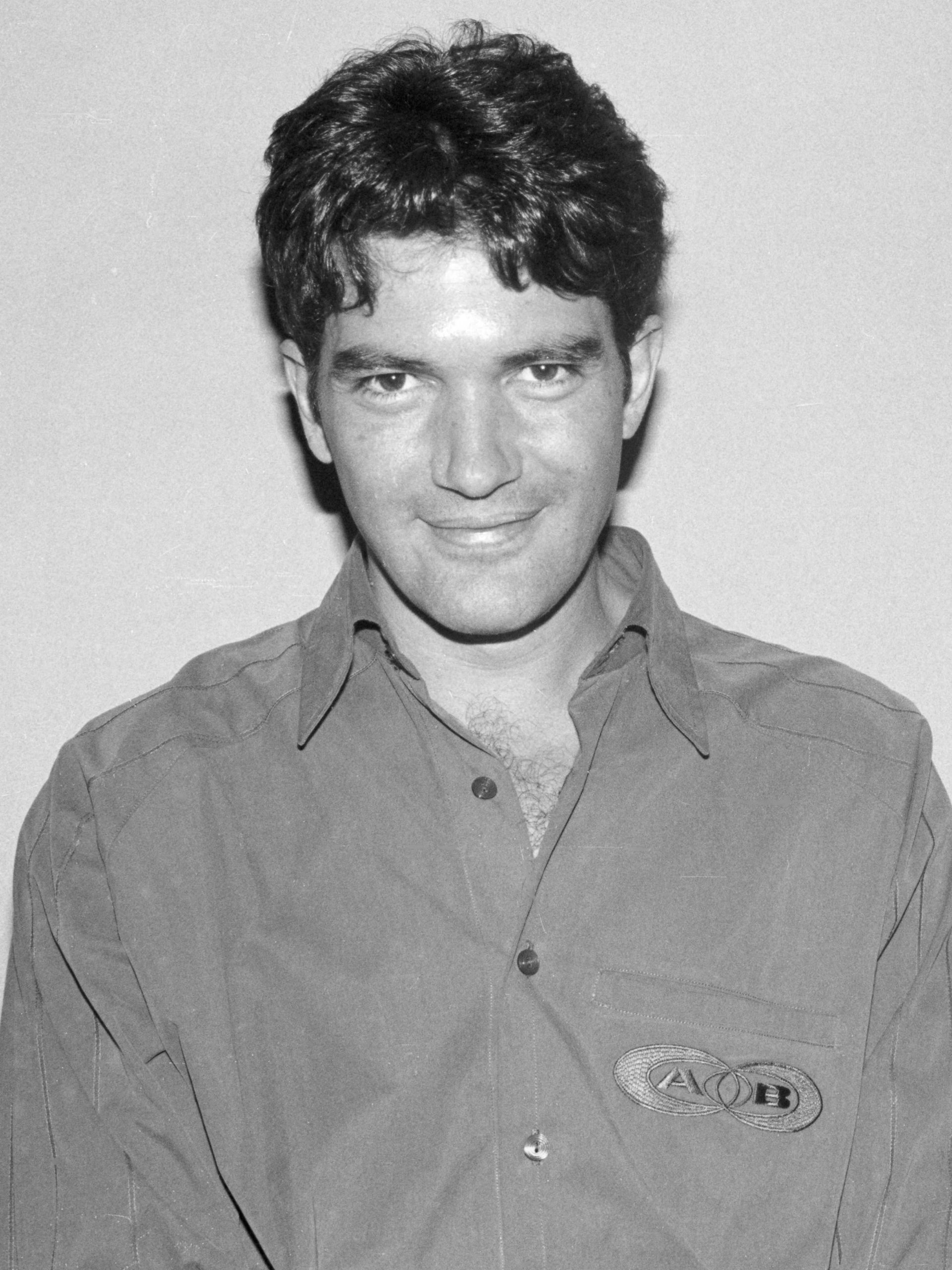
- Golden Globe Awards
Out of the Archives, 1998: Antonio Banderas – Becoming Zorro
Antonio Banderas, a five-time Golden Globe nominee, is on the top of the box office with the international hit Uncharted, with Tom Holland and Mark Wahlberg. Back in 1998 Banderas spoke to the journalists of the Hollywood Foreign Press in 1998 about The Mask of Zorro, directed by Martin Campbell, co-starring Anthony Hopkins, and Catherine Zeta-Jones. The role earned him his second nomination after Evita (1996) by Alan Parker and before Pain and Glory (2019) by Pedro Almodóvar. The character of Zorro – the Spanish word for “fox” – had been created in 1919 for the novel The Curse of Capistrano by Johnston McCulley, as a dashing swordsman and masked vigilante who defended the indigenous people of 19th century Los Angeles, California against corrupt officials.
Banderas had seen some of the previous interpretations of Zorro on the screen: “I saw some of the other versions of Zorro, especially the Douglas Fairbanks one (The Mark of Zorro 1920), Tyrone Power (The Mark of Zorro 1940), Alain Delon (Zorro 1975), and I was watching the TV series Zorro (1957-1959) with Guy Williams when I was in Spain as a kid. So that’s the information that I had about Zorro before the movie. I am very happy that I am the first Spanish actor in the history of Zorro, the only one who played him, and there are maybe 35 movies of Zorro.”
His performance as Zorro is different from the others because the actor made it personal and suggested to the director to add a sense of humor: “Because of the nature of our movie, I don’t have to imitate Zorro, my Zorro is completely different, he is called Alejandro Murrieta, he’s not Don Diego De La Vega anymore. What we are telling the audiences is that what is important here is not the man behind the mask, it’s the concept of Zorro, which is in the mind of the people, because the world needs justice and freedom. We establish an arc from the beginning to the end where we can see the creation of the hero in front of the audience, which we never saw before. Also, I was trying to bring to the character as much of a sense of humor as possible, because otherwise Zorro, who is bigger than life, becomes an arrogant human being that I didn’t want to portray. The secret is that I went to Martin Campbell, to Anthony Hopkins and Catherine and I said to them, ‘We have to use comedy bits and timing because if people see me failing, making mistakes, that makes my Zorro absolutely human.’”
The Mask of Zorro was shot in Mexico where it was easier to find locations and people that looked like California in the 1800s when it was part of Mexico: “Mexico is really important for our movie, not only for the fact of shooting there, because in California it’s probably difficult to find those spots, in terms of landscapes and location, to give the sense of what California was like 150 years ago, but also because we were using a Mexican crew, the costume designer and the art designer were Mexican, and those Indian faces of the extras are priceless. It’s difficult to find here in Los Angeles those colors, that folklore, and the fact that we were surrounded by the Mexican style of life. Also, I cannot tell you the amount of problems you have when you shoot in this city; it’s horrible. And Los Angeles really owes everything to the movies, this city was created by people like Cecil B. deMille and D.W. Griffith, and suddenly it’s almost impossible to shoot here, so that was practically the reason why we shot in Mexico.”
The Spanish actor was typecast as the Latin Lover when he first started making Hollywood movies, starting with The Mambo Kings in 1992, but he soon showed his range in a variety of genres: “With Pedro Almodóvar as an exception to the rule, in the rest of the movies that I was doing in Spain I was repeating myself, so the fact of coming to Hollywood really opened the range of possibilities in my profession for me. It’s also true that at the beginning I was pretty trapped, because my accent was impossible and I didn’t speak the language, so I had to spend a certain amount of time to acquire all the features and all the elements that I needed to accomplish a career, but after six years of sacrifice, I am now in a position where I knew that I could be. They put the label of Latin Lover on my shoulders as soon as I arrived here, but in reality, I have done different styles of movies since that time. I’ve done horror movies, Interview with the Vampire, comedies like Miami Rhapsody or Two Much, psycho thrillers like Never Talk to Strangers, action movies like Assassins, anthology movies like Four Rooms, musicals like Evita, adventure movies like The Mask of Zorro, and I am directing a movie, Crazy in Alabama.”
He does not believe that actors should be limited by their language or nationality in the roles they play in movies: “Andy Garcia is Cuban and he played an Italian in a movie by Francis Ford Coppola (The Godfather: Part III). Anthony Quinn is Mexican and played Eskimos, Russians, Greeks, everything. Anthony Hopkins is Welsh, and he played Richard Nixon in the movie by Oliver Stone. So, the history of motion pictures is full of this kind of intercultural situation. In my personal case, I have been playing Cubans, Italians, French, everything that doesn’t sound American.”

